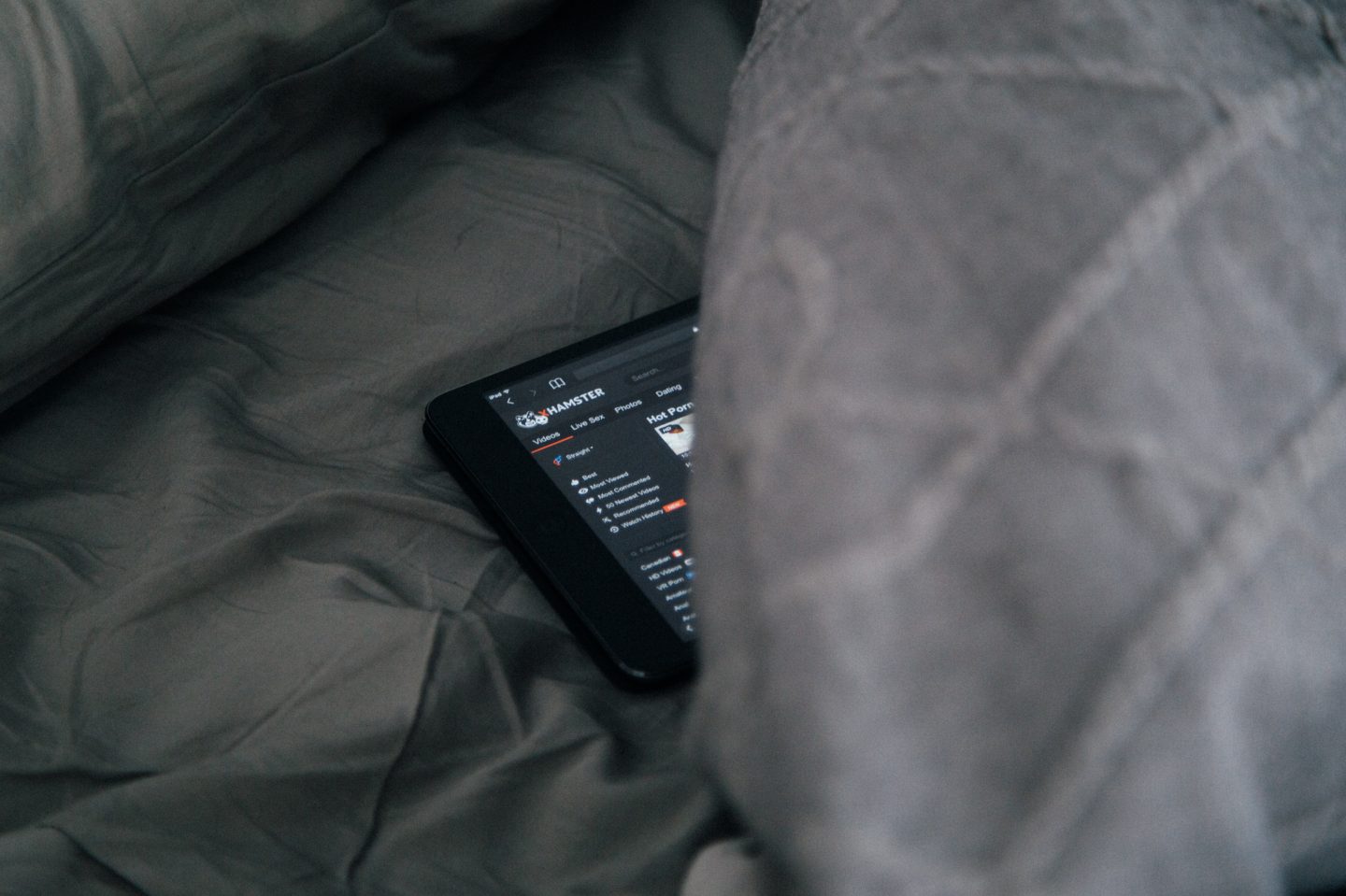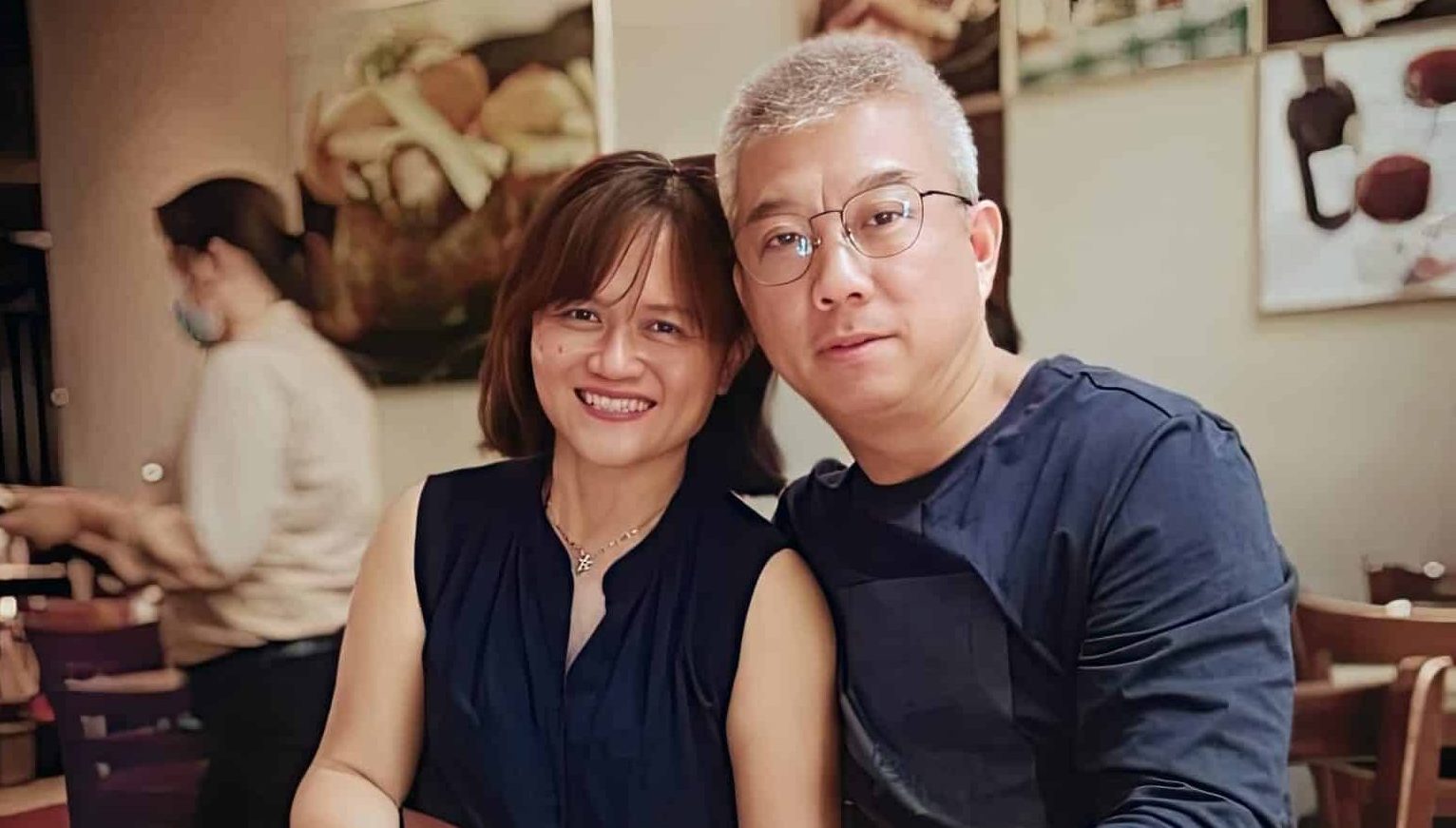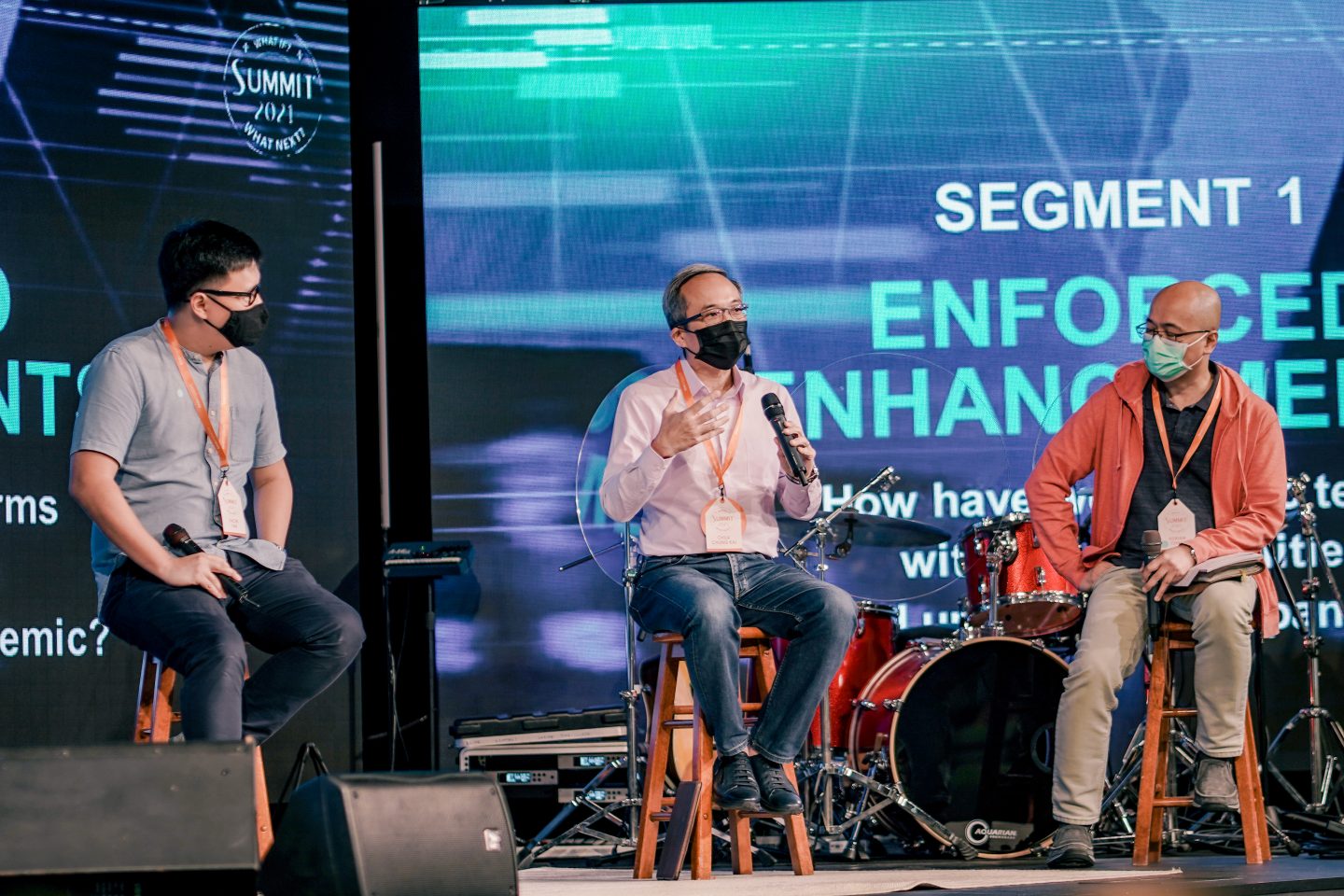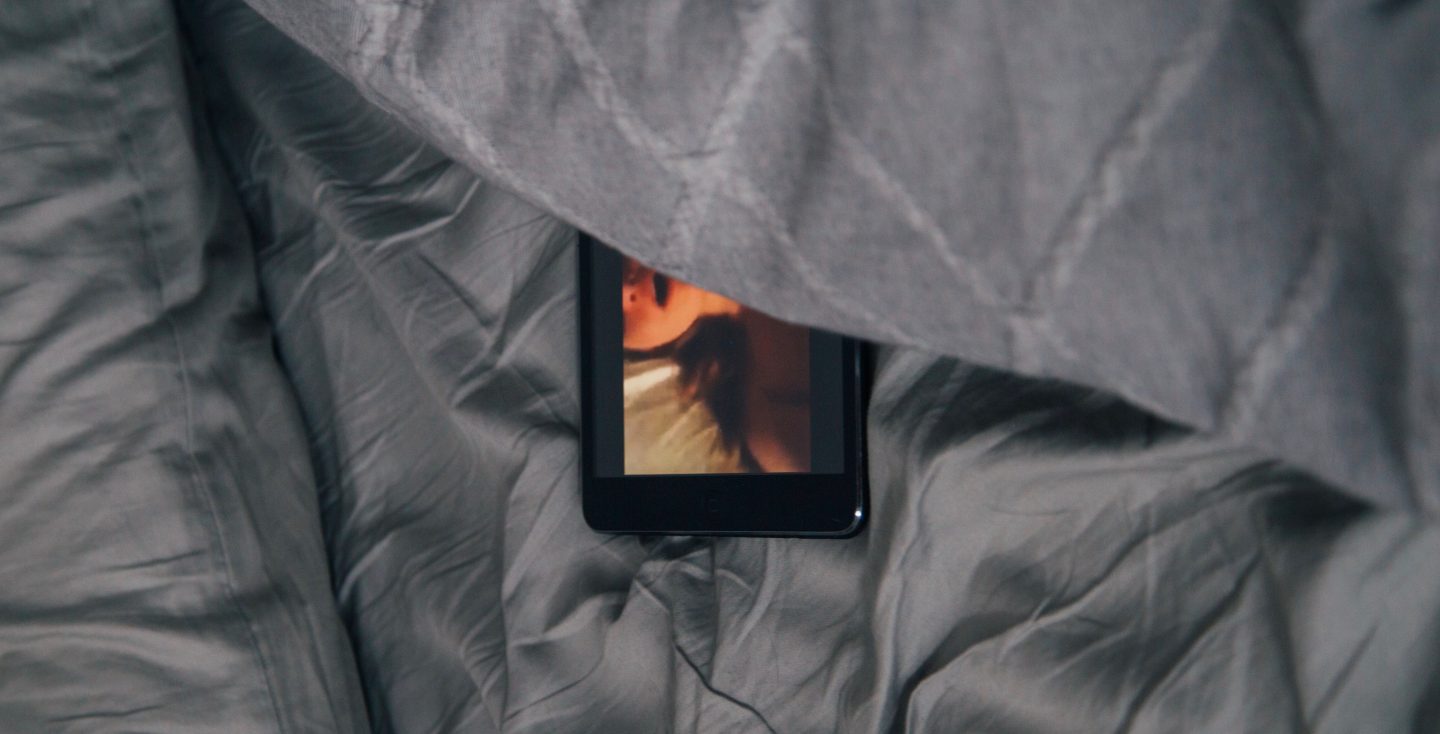“I believed the lie that I could beat it on my own”: Former porn addict now runs support group
by Christine Leow // September 19, 2020, 3:26 pm

“Sin thrives in darkness. When I don’t have a community, I don’t have to be honest," discovered Richard Porter, in his frank sharing on his battle with porn. Photo by Charles Deluvio on Unsplash.
Like many caught in the snare of pornography, Richard Porter, 44, came across it accidentally. He was 13 then and it was in the days long before the advent of the Internet.
Said the native of Michigan, USA, who now lives in Singapore: “The Sears and JCPenney catalogues had a lingerie section. That was how I got hooked.”
Raised in a Christian family who attended church “twice on Sundays and once on Wednesday”, he had a God-given “healthy fear” so he never went to adult book stores. But he did discover other ways to get his hands on sexually explicit material.
“The sheer pressure of school, the amount of stuff you have to learn and do, I couldn’t handle it.”
“I found that you could sometimes find graphic stuff in certain books like these war books. So, I would get them.”
By the time he went to college, he had access to the Internet. That was when his addiction to pornography “took off”, though he was in denial.
“I knew it was a problem but I would lie to myself that I wasn’t an addict because it was not something that I did every day.”
Even when his university caught him using their computers to access porn, he did not stop. Even when his girlfriend broke off their engagement after the invitations had been sent out, he did not stop.
For a while, counselling sessions with a pastor at his college helped. Said Porter: “It felt so good to be honest. All summer it was fine.”
But when he left to go to medical school, he relapsed.
“The sheer pressure of school, the amount of stuff you have to learn and do, I couldn’t handle it. I had to go to (pornography) to help my stress.”
The downward spiral
Porter, who was a guest speaker on the Salt&Light Family Night Zoom chat show on September 15, said marriage did not improve the situation. They had met in medical school and he had come clean to his wife before they had gotten married. Both had assumed marriage would make things better. “We were naïve,” Porter admitted.
“I didn’t understand the value of being in an honest relationship with people and being able to say, I fouled up.”
“I didn’t turn to porn as often (after I got married) but it was not any better because what you’re doing with porn is you’re using it to self-medicate something. That’s not what sex is designed for.
“So, I was using my wife for my own gratification, turning her into a porn object. Now, I had an actual human being to act out my lust and addiction on.”
So, there would be stretches of abstinence from pornography followed by relapses and confessions to his wife and promises to stop. Then, the cycle would continue.
“It went on for the first 13 years of our marriage and it really damaged the trust in our marriage,” said Porter.
A wake-up call
It took a call from God to work in Asia, and a psychological evaluation in preparation to re-locate to make him realise he had to do more to address his sex addiction.
Going from weekly, even monthly, stretches without looking at pornography was not recovery.
By then Porter had gone through a six-week programme to help men find freedom from pornography. He thought he had “got this”.
“I got the knowledge about the dangers of addiction. I know it works in my brains and fires these neuro-transmitters. I put those blockers on my devices. I checked these boxes and thought, ‘I’m okay’.
“But I still thought I could do it on my own. I didn’t understand the value of being in an honest relationship with people and being able to say, ‘I fouled up’.”
It was the psychologist who evaluated him who told him: “You don’t understand your addiction.”
She told him that he was merely preventing himself from acting out but that he did not yet know why he was acting out in the first place. Going from weekly, even monthly, stretches without looking at pornography was not recovery.
“You’re still addicted to the fix. You’re just muscling it,” she told him.
Said Porter: “That’s when it hit me. Porn is like the flower. I can cut it off but if the root is still there, it would still grow. I had to dig that root up.”
Getting to the root
Porter enrolled in Faithful & True, a Christian counselling centre specialising in treating sexual addiction. Through the three-day retreat, he was convicted of the severity of his situation.
“If he knows me and my sins and still loves me, I can trust Him.”
“It showed me that this addiction is like a cancer. If it is not addressed, it will get worse. It will keep growing. No doctor will say, ‘It’s a small melanoma. We’ll just cut out a small part of it’. You cut out the whole thing.”
He also learnt that his addiction was his way of protecting his self-worth.
“We learnt that we all have a ‘little boy’ within us. As we go through life, we get hurt and damaged and our ‘warrior man’ develops to protect the ‘little boy’.
“Usually, our protecting mechanisms are not healthy. I look at porn because it makes me feel good. Or people escape into alcohol or eat or yell and get angry.”
It is the ‘wise man’ who realises that Christ can make it right again “so we don’t have to protect or fight”.
“One of the things in family is that we didn’t talk about stuff. We wanted to make sure we look good on the outside.”
Though he had a near idyllic childhood, he grew up believing he had to “measure up to some kind of ideal”.
“One of the things in my family is that we didn’t talk about stuff. We wanted to make sure we looked good on the outside. So, it made me think I needed to put on a mask, this is how I should behave.”
Not being good at sport also opened him up to putdowns that “played to my low self-esteem and poor self-image”. Eventually, he realised he was good at his studies and that it would “make people happy and like me”. So, he strove for academic excellence.
The three-day retreat changed all that.
Said Porter, his voice breaking: “My true identity is found in Christ. One of the best things I learnt was that ‘it is finished’, as Jesus said on the cross. Our sins have been paid for.
“I didn’t have to lie to myself and to God that I’m doing great. God says, ‘I know you, I created you. You don’t have to lie to me’. So, if He knows me and my sins and still loves me, I can trust Him.”
The retreat was a “jumpstart to break down a lot of these walls and barriers of not wanting to share and be open” about his addiction. It paved the way for Porter to find a community to heal in.
No more solo journeys
He found that community in Celebrate Recovery, a Christian 12-step programme that helps people overcome hurt, pain or addiction of any kind. Ironically, the Celebrate Recovery programme had been running in a church just 10 minutes away from Porter’s own church in the USA all along. He just never joined it.
God says, ‘I know you, I created you. You don’t have to lie to me’.”
“I knew about it. Why didn’t I go? Because I didn’t think I had that bad of a problem at the time and I didn’t want to be one of those people. I had a pride issue.
“I was afraid of what people would think of me if they found out and I believed the lie that I could beat it on my own. In the end, though, the pain (of the struggle) was worse than my fear.”
The programme involves weekly meetings where participants share their struggles and learn to overcome their issues based on the eight recovery principles founded on the Bible.
Asked why sharing with others made such a difference to recovery, Porter said: “Sin thrives in darkness. When I don’t have a community, I don’t have to be honest. I don’t have to uncover the problems of my sin and addiction.
“Sin thrives in darkness. When I don’t have a community, I don’t have to be honest.”
“Confessing to people around you convicts you, at least in my life. Speaking out, (the addiction) loses it power. It does something.
“It very biblical to have a community. ‘Iron sharpens iron so one person sharpens another’ (Proverbs 27:17). That’s why God created us to be in the body of Christ. He cleanses us and heals us, and He designed restoration to come from being in community.”
Porter also found a sponsor within the group to walk with him. Every day for months, his sponsor would call him to check in on him. He would also make Porter list five things he was thankful for.
“That was one of the best exercises to do. If I say what I am thankful for I can’t have a pity party. Then, I couldn’t get sad and depressed, and act out. It helped me keep my perspective right.”
“He cleanses us and heals us but restoration comes from the community.”
Porter admits it was not always easy. There were days when all he could give thanks for was the fact that he was still breathing. But he soldiered on.
It has been nearly three years since Porter found his accountability group in Celebrate Recovery. When he and his family moved to Singapore, he found a way to continue the meetings.
He helped to start a Celebrate Recovery group at the International Baptist Church of Singapore. He has also maintained his relationship with his sponsor who still lives in the USA. He maintains that it is this accountability that has “kept me sober”.
“When you step out of the addiction, you feel like you can breathe again for the first time. It’s so refreshing. The weight is lifted off your shoulders.”
Why addiction to pornography is so insidious: A counsellor shares the challenges
https://thir.st/blog/5-lies-that-porn-will-tell-you/
Why addiction to pornography is so insidious: A counsellor shares the challenges
We are an independent, non-profit organisation that relies on the generosity of our readers, such as yourself, to continue serving the kingdom. Every dollar donated goes directly back into our editorial coverage.
Would you consider partnering with us in our kingdom work by supporting us financially, either as a one-off donation, or a recurring pledge?
Support Salt&Light


